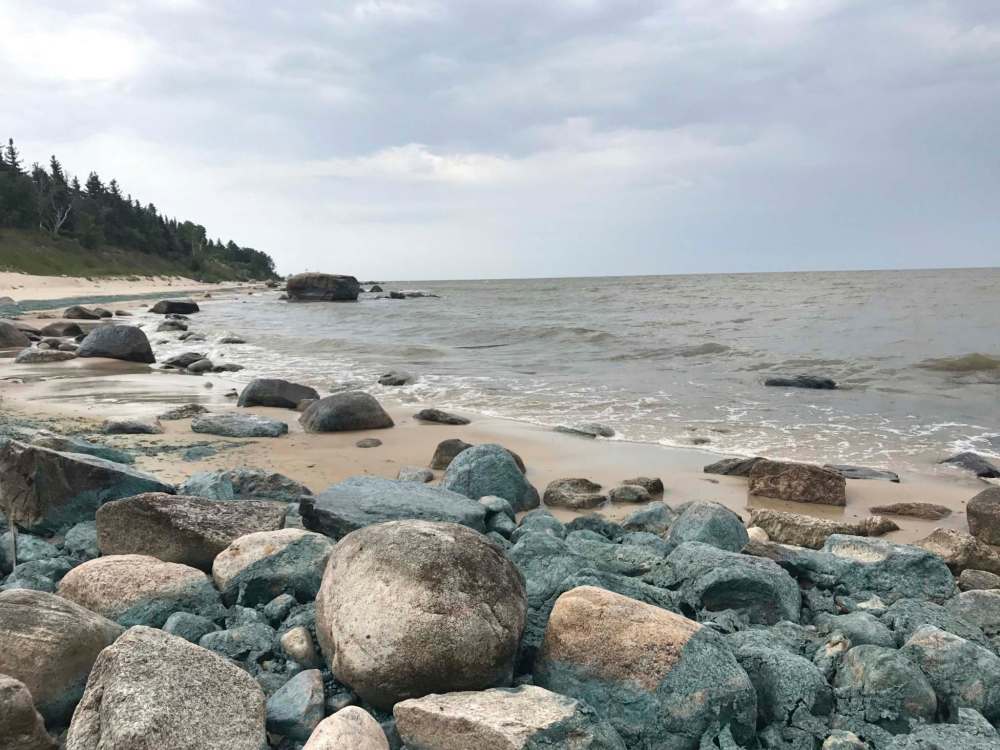North Dakota projects seen as threat to Lake Winnipeg
Advertisement
Read this article for free:
or
Already have an account? Log in here »
To continue reading, please subscribe:
Monthly Digital Subscription
$1 per week for 24 weeks*
- Enjoy unlimited reading on winnipegfreepress.com
- Read the E-Edition, our digital replica newspaper
- Access News Break, our award-winning app
- Play interactive puzzles
*Billed as $4.00 plus GST every four weeks. After 24 weeks, price increases to the regular rate of $19.00 plus GST every four weeks. Offer available to new and qualified returning subscribers only. Cancel any time.
Monthly Digital Subscription
$4.75/week*
- Enjoy unlimited reading on winnipegfreepress.com
- Read the E-Edition, our digital replica newspaper
- Access News Break, our award-winning app
- Play interactive puzzles
*Billed as $19 plus GST every four weeks. Cancel any time.
To continue reading, please subscribe:
Add Free Press access to your Brandon Sun subscription for only an additional
$1 for the first 4 weeks*
*Your next subscription payment will increase by $1.00 and you will be charged $16.99 plus GST for four weeks. After four weeks, your payment will increase to $23.99 plus GST every four weeks.
Read unlimited articles for free today:
or
Already have an account? Log in here »
Hey there, time traveller!
This article was published 31/08/2017 (2970 days ago), so information in it may no longer be current.
New Democrats have accused the federal and provincial governments of standing idly by while North Dakota threatens the beleaguered health of Lake Winnipeg, an accusation adamantly denied by both governments.
NDP MLA Rob Altemeyer and NDP MP Daniel Blaikie told a news conference Thursday that North Dakota already has two projects underway to divert Missouri River water — one in northwest North Dakota that would end up in the Assiniboine River, and the other in the northeast that would flow into the Red River.
The water would be pumped through pipelines to allow North Dakota to grow its industrial development capacity and to relieve years of drought, Altemeyer said.

“Both the Red River and the Assiniboine River are under threat, potentially severe threat,” said Altemeyer.
Environmental activist Don Sullivan told the news conference the diversion projects would introduce new pollutants and invasive species from the Missouri River that would soon end up in Lake Winnipeg. Sullivan said that some of the additional water would allow North Dakota mines to increase its use of frakking, which would dump underground waste back into the rivers.
“These two projects in North Dakota are going to contribute further to the suffering of Lake Winnipeg,” Blaikie said.
Blaikie said the federal Liberals should be opposing the projects through the International Joint Commission — it’s the responsibility of Foreign Affairs Minister Chrystia Freeland, he said.
That’s exactly what Ottawa is doing, an aide to Freeland said from Ottawa, echoing an aide to Manitoba Sustainable Development Minister Rochelle Squires.
Said a spokesperson for Manitoba sustainable development on Thursday: “This month, the United States District Court issued a judgment in Manitoba’s case against the Northwest Area Water Supply Project (NAWS).
“The judgment finds the NAWS project has now met U.S. federal environmental review requirements and allows work to proceed. Litigation around this project has been ongoing since 2002,” she said.
“Manitoba’s primary concern throughout these proceedings has been to protect our waters from the risk of invasive species and aquatic diseases. This remains our priority and we are still reviewing the decision and engaging with the federal government to determine our next steps, including the role that the International Joint Commission can play.
Manitoba officials have been in contact with federal officials on recent developments with proposed United States inter-basin water transfers in North Dakota,” she said.
The feds have “worked with and supported Manitoba’s position on these water issues for many years. We are reviewing the recent court decision and will determine next steps based on this review,” said a spokesman for Freeland.
Altemeyer said that while the Missouri River does not cross the border — it flows south — the NDP believes that international agreements dating back to 1909 prevent any waters flowing into Canada from harming Canada’s rivers and lakes. If North Dakota pumps the Missouri River into rivers that cross into Manitoba, Canadians should be able to object, he said.
nick.martin@freepress.mb.ca
History
Updated on Thursday, August 31, 2017 5:18 PM CDT: Adds headline

